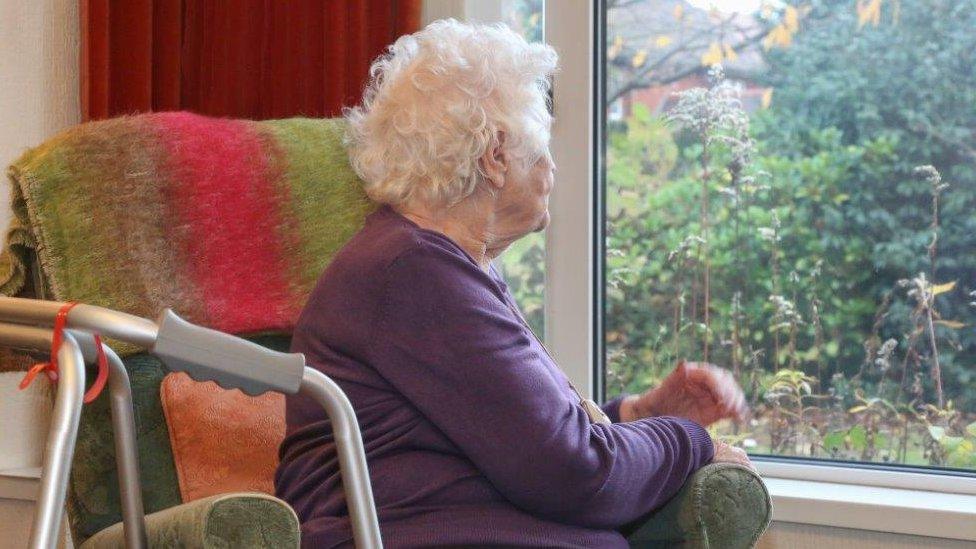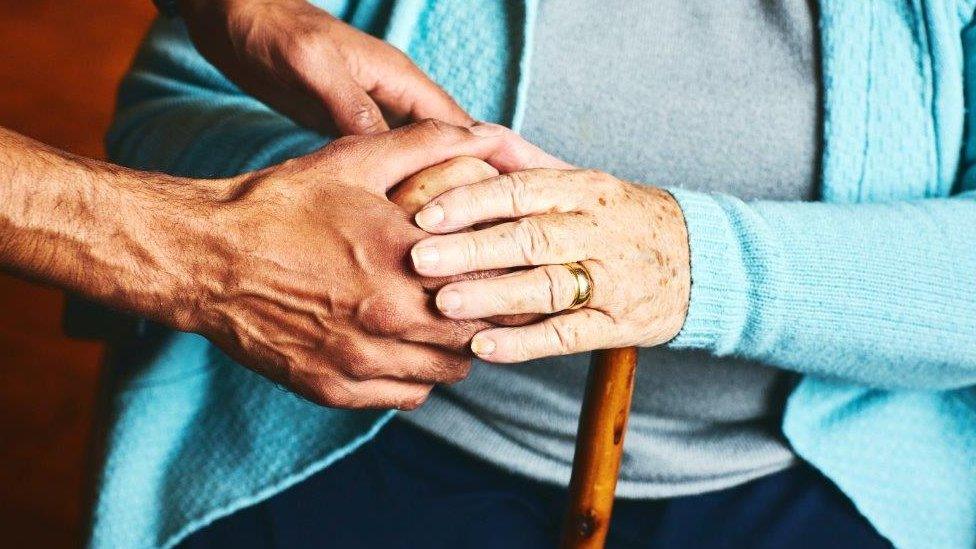Coronavirus: Care companies fear bankruptcy
- Published
- comments

Social care firms help older and disabled people to live in their own homes
Coronavirus has left companies which support older and disabled people in their own homes struggling to cope, says their professional association.
The UK Home Care Association says the firms need more protective equipment for staff and clearer guidance on protecting clients.
The virus has put care companies which were already financially vulnerable under additional pressure, says UKHCA.
A £350bn package to support businesses "small and large" has been announced.
In a statement on Tuesday, Chancellor Rishi Sunak vowed to do "whatever it takes" to help the economy and support businesses "to get through this".
Care cash crisis
The extra demands placed on care at home by the coronavirus outbreak have thrown the underlying social care crisis into sharp relief, UKHCA argues.
In the current situation, home care companies say they are likely to have more people needing care and will need to train extra staff as some will not be able to work if they become ill.
Tuesday's announcement by NHS England that hospitals should free up some 15,000 beds by discharging long-term patients who are medically fit into the community is expected to pile even more pressure onto the social care sector in the coming weeks.

EASY STEPS: How to keep safe
A SIMPLE GUIDE: What are the symptoms?
TRAVEL PLANS: What are your rights?
IN-DEPTH: Coronavirus pandemic

The UKHCA says social care companies not only urgently need extra financial support from government but also changes to the way they are paid by local authorities, so they "don't run out of money".
The association's chief executive Dr Jane Townson said: "We are desperately worried about the ability of care providers to remain solvent, whilst paying unprecedented numbers of careworkers who are sick or self-isolating.
"Councils and the NHS only pay for care delivered. They will not pay for careworkers who are prevented from working. People who buy their own homecare will not be able to bear the additional cost of staff absence."
The association represents more than 2,000 care providers, from private firms to not-for-profit organisations, many of which are already under financial pressure across the UK after a long-standing failure by governments to reform or fund the council-run system properly.
Local authorities buy most of the care for people in their own homes and at the end of each month, the number of minutes of support provided by care staff is totted up and the firm is paid for that in arrears.

The UKHCA wants councils to pay companies upfront, based on the average amount of care they have provided in previous months, with the final figures worked out later.
Equipment supplies
On the subject of personal protective equipment, Sir Simon Stevens, chief executive of NHS England, has told MPs that there is enough of it but there have been problems getting supplies to the right places.
"Let's be clear, this is a challenge facing every country," Sir Simon told the Commons health and social care committee.
"A lot of the Chinese supply for some of the more basic items has been disrupted.
"So, we are going to have to ramp up the production of gowns, in particular, and some of the face masks, given this is not a flash in the pan… we are going to have to ramp up domestic production of those items as well."